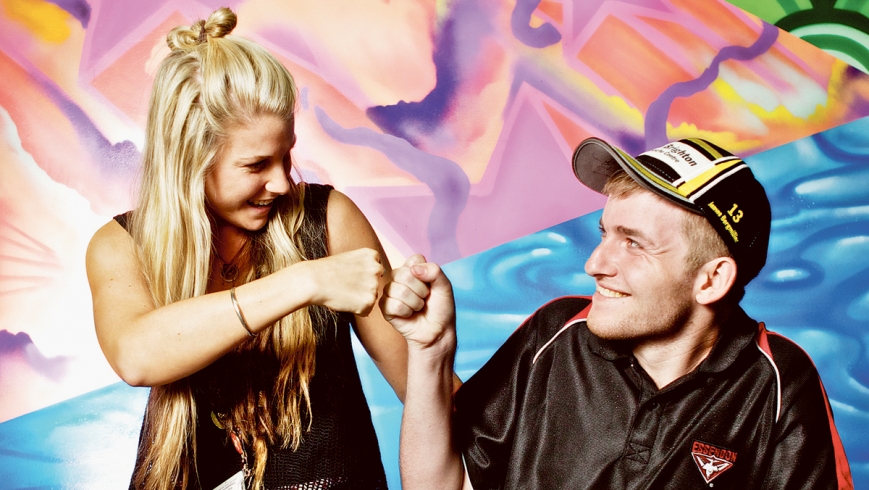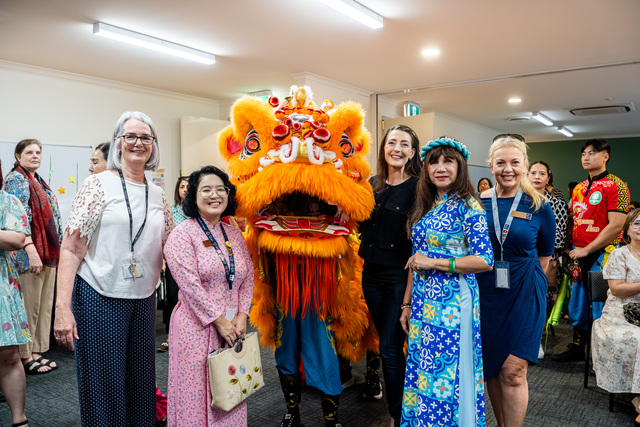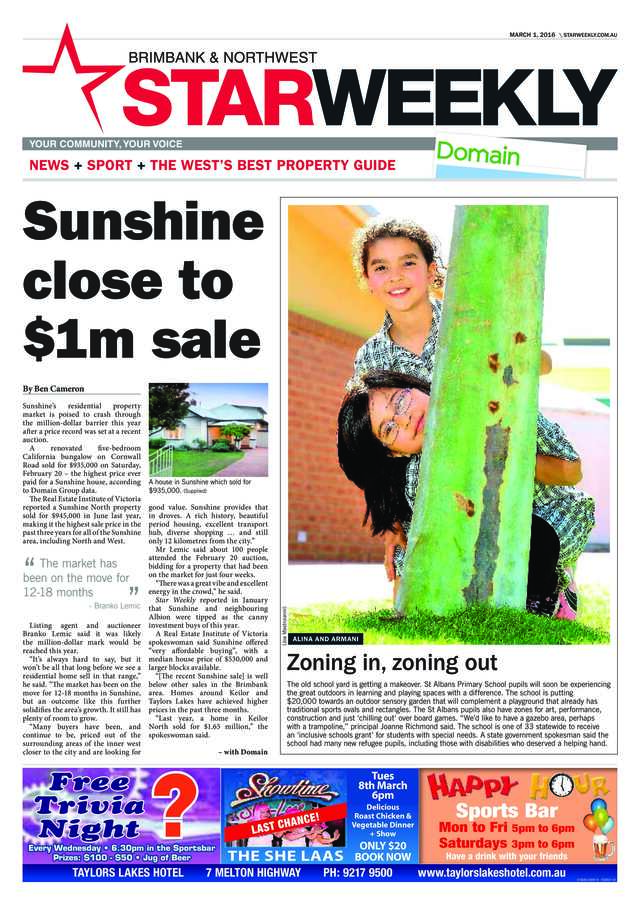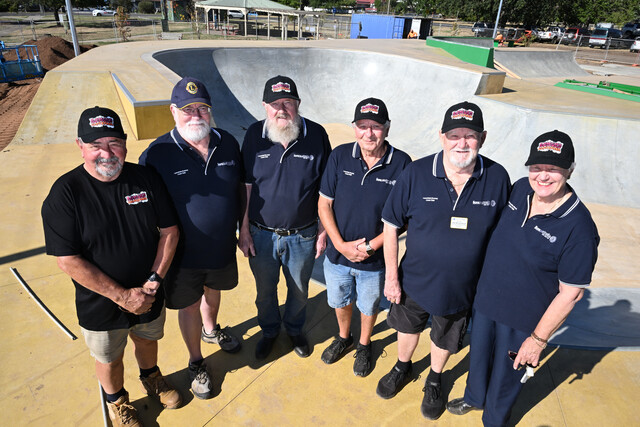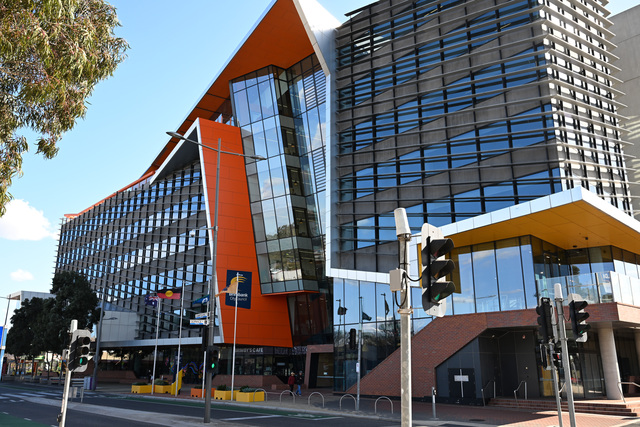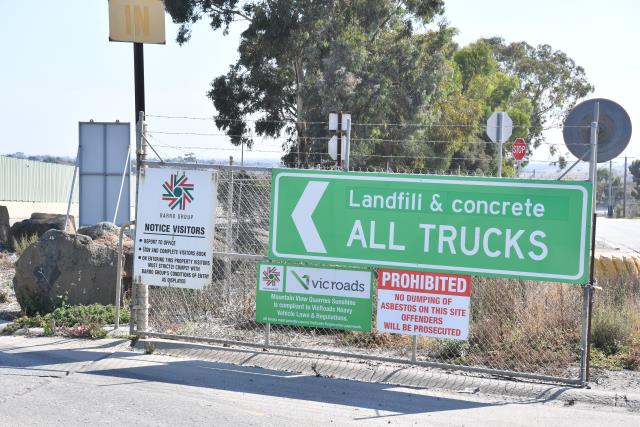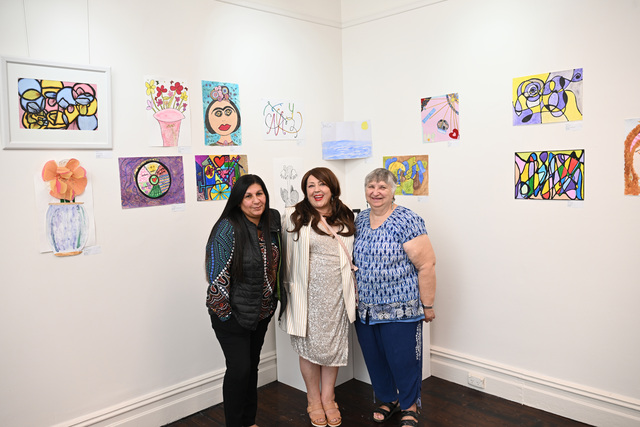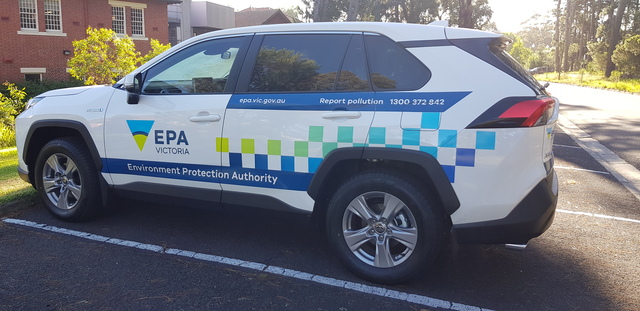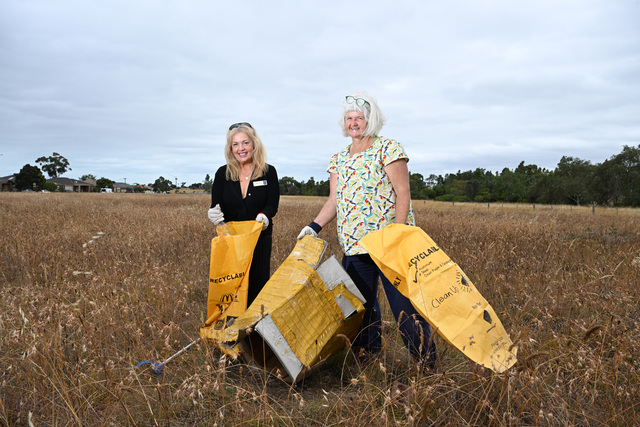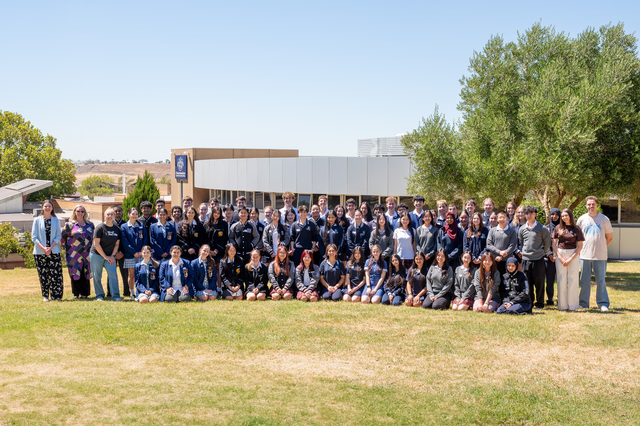Ashley Wells is getting his life back on track through the help of Whitelion
They organised to meet at a McDonald’s restaurant in Greensborough in 2011, the fast-food outlet being considered the most suitable place to break the ice.
His hands were empty, but Ashley Wells, then still a teenager, carried the burden of a history of family dysfunction and years of living in out-of-home care.
The encounter would become the first of many with Renee Kefalas, a mentoring co-ordinator across the northern region with not-for-profit youth service Whitelion.
Wells had been referred to the organisation, which works with young people at risk of falling off the radar, by his Department of Human Services case worker.
“My case worker told Renee that I was getting quite bored on the weekends and had nothing to do,” Wells, now 20, recalls.
Kefalas says Wells presented as an enthusiastic, albeit terribly cautious, adolescent. “The first time I met him he was very shy and quiet,” she says.
But the meeting went swimmingly and Wells soon signed up to the Whitelion mentoring program that partners ordinary members of the community with young people who have gone through the youth justice system or who have been living in out-of-home care and suddenly find themselves unable to cope on their own.
Like the hundreds of young people who leave out-of-home care each year, Wells was faced with the prospect of finding his own housing once he turned 18. The transition can be difficult and for many the wheels fall off when the support ends.
“It was hard because over my years in care I always felt I had a home to go to and then I didn’t have anywhere to call home,” says Wells, who briefly lived with his sister and then slept on a mattress at his brother’s house. “It wasn’t a home, it was just a place to go and sleep,” he recalls.
Wells later lived with his partner, with whom he has a daughter, but the relationship broke down and he ended up homeless. “I go and see her [my daughter] every fortnight on my pay days,” he says.
“Every time I leave the house I feel bad and stuff but, then again, I feel I’ll be there at some point in her life.”
For almost a year he has been residing in supported accommodation at a housing block in Footscray operated by not-for-profit organisation Berry Street.
Young people living at the block must be enrolled in education or vocational training to qualify for the temporary housing.
“We basically have to find our own housing when we turn 18, but that is also supported with furniture and other things,” Wells says.
In the form of a mentor named Mal, he also had support to help his transition from the state care system to the daunting reality of the real world. Wells counts this friendship as a leading reason he has got his life back on track.
The pair meet every fortnight for a few hours, but Mal also attends weekend footy matches to watch Wells play as part of a disability side in Coburg.
“He’s given me lots of confidence,” Wells says. “He rings me and asks how I am and I text him to see what he’s up to. He’s become a friend and also like a big brother.”
Mentors are community volunteers from all walks of life, trained and registered through Whitelion. The organisation has about 200 mentors on its books across the entire state.
The relationship normally lasts for a bit over a year but is judged on a case by base basis. Wells and Mal will soon chalk up three years of knowing each other.
“It’s been awesome to see him become more of a confident young man,” Kefalas says. “Even though Ash had a few changes here and there, that friendship [with Mal] has remained.”
Robyn Ferguson, Whitelion team leader for the northern region, says the connection between young people and mentors is crucial.
“It’s a very rewarding and enriching experience for the young person,” she says. “The mentor is a consistent person in their lives other than workers. For a lot of young people the key consistent people in their life have been professional workers.”
Wells, who aspires to become a truck driver, has accessed several other programs offered by Whitelion that assist with job training, support and employment.
He started a plastering course, but it fell through when the teacher had to opt out for personal reasons. Wells is now trying to re-link with employment through job training.
“When he’s going up and down – and when all our young people are going up and down – we can provide support for them,” Ferguson says.
Perhaps Wells’s biggest step forward has been his pathway into the Young Lions’ leadership program this year.
The program is made up of young people aged 15 to 25 with a history of the youth justice or out-of-home care systems and who have been identified as potential leaders.
The year-long program involves fortnightly workshops and three camps and is aimed at creating an opportunity for young people to become role models and inspire others.
Wells seems keen on making a difference. “You basically help a young person who’s going on the wrong path and you can give them guidance to the right path,” he says. “You’re a role model and they look up to you. I’m in a good place where I feel like I can give back to other young people and lead them on the right path because you can achieve things in life.”
Ferguson agrees. “I love seeing young people achieve and move through life and become independent and achieve their goals and dreams.”
A $1 million state government-funded research project, dubbed Beyond 18, is investigating young people’s experience during their transition from out-of-home care and after they have left care.
The five-year study began in 2012 and will focus on young people scheduled to move out of the system this year.
Ferguson says there is no quick fix to the problem, and she would welcome anything that would trigger further support for organisations offering services. “It’s a chronic problem. I think homelessness of young people is on the rise but because of couch surfing it probably doesn’t get acknowledged as much as it should.”

